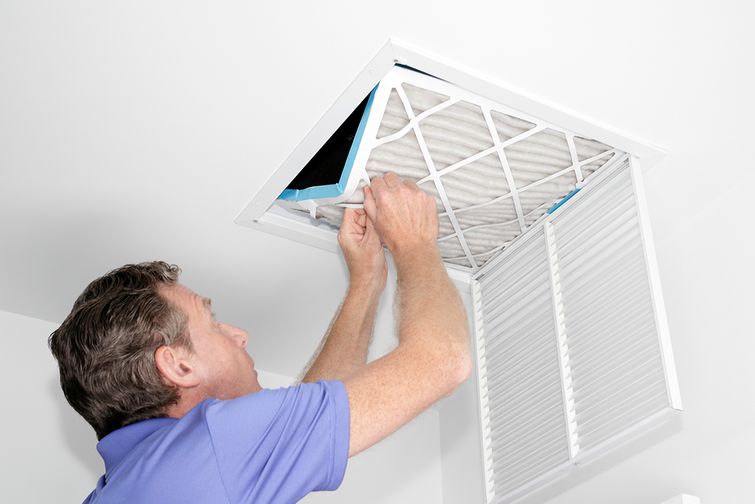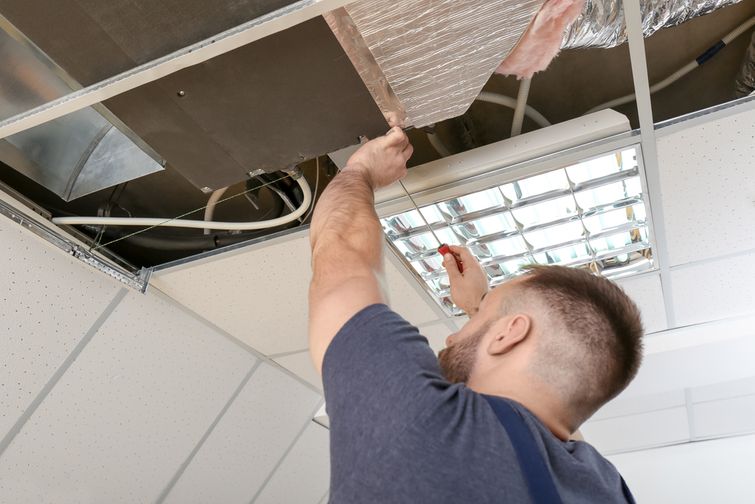Air filters play a crucial part in keeping the air in your home clean. Without them, airborne particles like pet dander, dust mites, and mold spores could be floating around your home and in the air you breathe.
So is it worthwhile to invest in more expensive air filters? Or can general filters meet your air quality needs?
In this blog, we will answer the question “Are expensive air filters worth the extra money?” We will also talk about the benefits of pricier filters to help you decide whether you should invest.
Why Do I Need An Air Filter?
As previously mentioned, air filters help keep the air inside your home clean. Whenever air is pulled through the air vents and into your furnace or air conditioning unit, it goes through an air filter. The air filter captures all of the particles and contaminants in the air, saving you from having to breathe them in later.
The Benefits of Expensive Air Filters
Filter Fine Particles
Low-cost air filters are typically made of spun fiberglass. Spun fiberglass filters are not very effective when it comes to air filtration. Woven fiberglass is a bit better, but it still has large gaps that can allow dust and dirt particles to move through the filter, into your duct system, and back out into your home.
Expensive air filters are made of tightly woven materials like cotton, paper, and polyester. They are much better at grabbing and holding on to dirt than fiberglass.
Cheap fiberglass filters provide only minimal protection to your air. Invest in an expensive air filter made out of paper, cotton, or polyester to catch smaller particles before they are released back into your home.

Pleated Air Filters Have More Surface Area
Pleated residential filters typically have a higher price tag than their non-pleated counterparts, and it’s not just because of the fancy pleated paper. More pleats (or folds) help increase an air filter’s surface area. The more surface area that a filter has, the more room it has to trap particles.
Pleated filters improve air quality greatly by trapping more dust, dirt, and grime. People with severe allergies should select a filter with more pleats because it will reduce the number of allergens in their home’s air.
Less General Maintenance
If you are tired of changing or cleaning your filter constantly, then you could consider paying more for less work.
A filter with a bigger trice tag will take less maintenance than cheap new filters. Costly filters are usually 4 to 5 inches thick, providing more space to catch dirt and dust particles than cheap 1-inch filters. As a result, pricey filters will take longer to fill up, meaning you do not have to swap them out as often.
While washable air filters may seem like a great way to save money, they take a lot of work to maintain; you need to clean your washable air filter thoroughly to ensure that you are not adding more dust and dirt back into your home. Disposable filters may be more money, but they will save you time and energy in the long run.

Choose An Electrostatic Air Filter
The most expensive filters are actually air purifiers.
HEPA filters are electronic air cleaners that work in conjunction with HVAC systems. They are attached directly to your HVAC system and filter the air in addition to your furnace or air conditioning filters. With MERV ratings of 17 and over, they are extremely efficient at filtering, capturing 99.97% of particulate matter.
While the HEPA filter is extremely efficient at filtering, it does have high energy costs. You will need to decide what is more important, air quality or your budget.
There Is Such Thing As Too Much of A Good Thing
Expensive air conditioning filters and furnace filters may be worth your money if you want better indoor air quality. But remember: do not buy a filter with the highest MERV rating possible.
Your central HVAC unit will have a recommended MERV rating, and you should not exceed it. Using a filter with a higher rating could restrict air flow and cause your HVAC system to work in overdrive to push air through, thus lowering your energy efficiency and driving up your energy bills. It may even cause a pressure drop in your furnace, causing it to need repair from furnace and air conditioning engineers. Choose a filter that matches the MERV rating outlined on your furnace.
